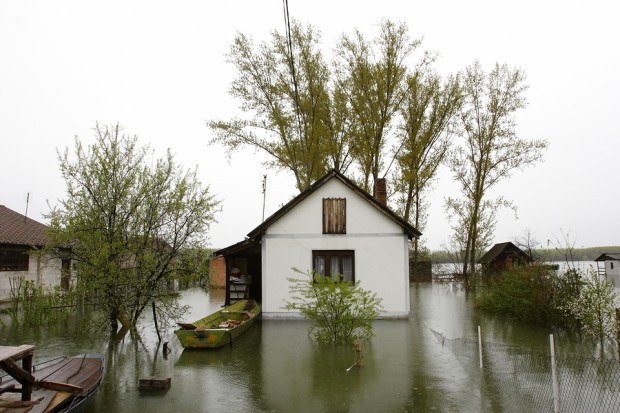The National Association of Mutual Insurance Companies on Wednesday released a statement urging Congress to resist efforts to delay the reforms adopted under the Biggert-Waters Flood Insurance Reform Act, which NAMIC believes are vital to moving the National Flood Insurance Program (NFIP) toward fiscal stability and reducing the need for additional taxpayer-funded bailouts.
Key to those reforms is the gradual transition by the NFIP to charging actuarially sound, risk-based prices for coverage. The NFIP is $28 billion in debt, says NAMIC, and delaying reform could leave the program unable to meet its obligations and taxpayers on the hook for more bailouts.
In a letter sent to Congress on Tuesday, NAMIC wrote: “Delaying the reforms would represent a step backward to a broken system of taxpayer-funded subsidies and bailouts…The government should not continue to mask the risks of living in a flood-prone area by delaying the Biggert-Water Act and prolonging the subsidization of flood insurance rates.”
While NAMIC supports providing assistance for property owners who truly cannot afford the new rates, the association believes any assistance should be fully transparent and not hidden as suppressed premiums that leave the homeowner blind to the actual flood risk and the NFIP underfunded.
NAMIC urges Congress to focus on mitigation to reduce the costs of natural catastrophes. Simple measures, such as enhanced building codes, have been shown to significantly reduce losses from extreme weather, says NAMIC. Rather than the government using rate suppression for flood insurance, NAMIC believes consumers should understand the perils they face and take steps to mitigate against future damage.
“The insurance industry has been a leader in supporting efforts to lessen the pain of disasters before they happen,” NAMIC wrote to Congress. “By building stronger, safer communities, we can reduce the destruction that severe weather brings and the need for federal disaster aid, which benefits not only businesses and communities in a storm’s path but also the entire taxpaying community as a whole.”





















 High Court Ruling on Trump Tariffs to ‘Ease Uncertainty,’ Says AM Best
High Court Ruling on Trump Tariffs to ‘Ease Uncertainty,’ Says AM Best  Reinsurance Program Could Wipe Out Need for Calif. FAIR Plan: Legal Exec
Reinsurance Program Could Wipe Out Need for Calif. FAIR Plan: Legal Exec  Beyond Automation: The Emerging Role for Contextual AI in Insurance
Beyond Automation: The Emerging Role for Contextual AI in Insurance  Premium Slowdown, Inflation Factors to Lead to Higher P/C Combined Ratio: AM Best
Premium Slowdown, Inflation Factors to Lead to Higher P/C Combined Ratio: AM Best 
